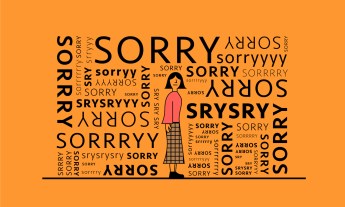
A simple framework for delivering a short, sincere “I’m sorry,” from criminal defense attorney Jahan Kalantar.
This post is part of TED’s “How to Be a Better Human” series, each of which contains a piece of helpful advice from people in the TED community; browse through all the posts here.
Quick question: What’s the worst part of apologizing?
A) Working up the courage to admit we were wrong.
B) Standing in front of the other person and saying that we’re sorry.
C) Waiting for a reaction from the other person after we’ve spoken.
You’re on your own with the first and third parts, but Jahan Kalantar, a criminal defense attorney in Sydney, Australia, is here to assist with the second.
In his profession, apologies matter a great deal. “I’m talking about the difference between going to jail and going home, the difference between seeing your children twice a year or twice a week,” says Kalantar.
But even when there’s a lot at stake, and even when you feel genuine remorse, you may still find it hard to apologize — searching for the perfect words that, as Kalantar puts it, “communicate vulnerability and gratitude.”
He suggests a simple “why-because-and” framework.
Start by looking the other person in the eye.
Say why you’re sorry.
For example: “I’m sorry I couldn’t make it to your housewarming party …” or “I’m sorry I handed in my proposal one day late …”
Explain the because behind your remorse.
For example: “… because I know you were so excited to show me your home …” or “… because I know you need those numbers to figure out the budget …”
Finish with an and.
For example: “… and when you have another party, I’ll be there.” or “… and I’ll send you the report tomorrow and I’ll be sure to meet all future deadlines.”
Kalantar’s method identifies what went wrong, acknowledges fault, and then points towards a solution. In cases such as a silver-wedding anniversary dinner, there is no obvious and to offer, but you can say something like “… and I’d love to celebrate with you and Mary in the future.”
Through your words and tone of voice, you should make it clear that you’ve thought about your actions and you’re truly sorry. “The next time you make a mistake … don’t be afraid to be vulnerable and authentic, because the power of any message is how honest of a place it starts its journey,” says Kalantar.
Watch his TEDxSydney talk here:














